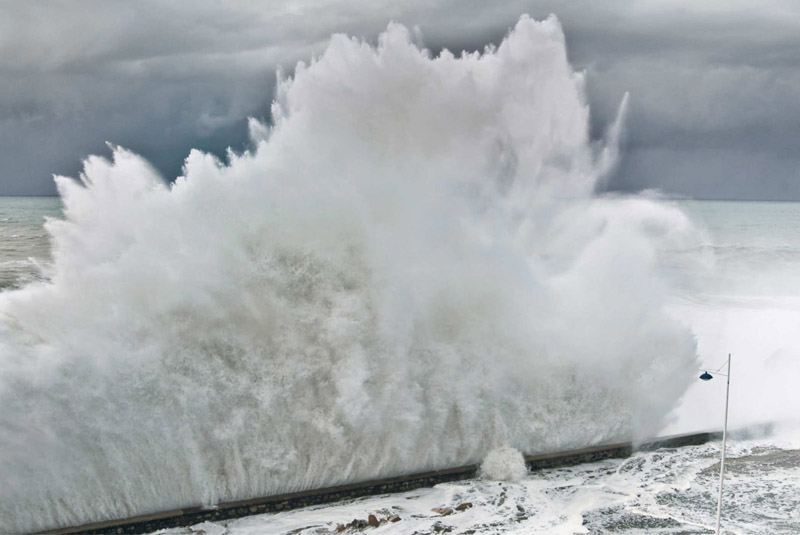Uhinak 2022: when fighting climate change is teamwork
Últimas noticias
The first shortfin mako shark tagged in the Bay of Biscay by AZTI, advancing conservation efforts
Savour and sustainability: insects in gastronomy
Catching fish living at depths of more than 200 meters may have climatic consequences
- The fifth Conference on Climate and Coastal Change will be held at Ficoba on November 16 and 17 and will be attended by more than 150 experts and congress participants
Irun, 14 September 2022. The Uhinak conference, organised by Ficoba and the technology centre AZTI, is set to be held for the fifth time at Ficoba under the slogan “Focusing on action and communication against climate emergency”.
Since this conference was first held in 2015, climate change has turned into climate emergency. It has become a pressing reality and we need to start making decisions and, naturally, planning for them.
As discussed at the last Uhinak conference in 2020, there are two main previous challenges with regard to creating effective measures: acquiring knowledge and transferring it to the areas where decisions are made and to the citizens themselves.
Uhinak has an important role to play as a meeting place and forum for discussion and reflection by all the actors who must join forces and work together to meet the challenge of climate change: representatives from the public sector, politics, business and journalism, technicians and experts from technology and research centres.
They will all be meeting again at Ficoba on November 16 and 17, at an on-site conference this year, to join forces and pull together as a team to advance with the action-taking and decision-making process for slowing down the climate change that we have already begun to perceive as a serious threat.

Índice de contenidos
Thematic areas and conferences
In a packed two-day schedule and from numerous perspectives, the conference will address the current situation of our coasts, their possible evolution over the next few years, the increase in extreme events and ways of tackling this climate emergency scenario on our coasts.
The content of the fifth Uhinak conference has therefore been organised into four thematic areas: the status of our coasts now and in 2050 in a context of climate change; extreme events and adaptation measures; mitigating climate change and restoring biodiversity; and governance, management tools and communication. Leading Spanish and international personalities will participate in all the areas and have already been posted on the conference website (www.uhinak.com).
Francisco Doblas-Reyes, Head of the Earth Science Department of the Barcelona Supercomputing Center, has confirmed his participation and will give the opening talk to launch the two days of the conference on November 16, addressing the physical aspects of climate change in the sixth report by the Inter-governmental Panel on Climate Change (IPCC).
On November 17 it will be the turn of a member of the Norwegian Institute for Water Research, who will speak about ocean acidification research geared to nature-based solutions, mitigation and adaptation.
About Uhinak
Uhinak is a Cross-Border Conference on Climate and Coastal Change organised by Ficoba and the technology centre AZTI and supported by numerous institutions including the Basque Government’s Department of Economic Development, Sustainability and the Environment through its public company Ihobe, the Gipuzkoa Regional Government (Department of the Environment), Communauté d’Agglomération Pays Basque and the Nouvelle Aquitaine Region.
The aim of Uhinak is to discover the needs of the managers who must take action against climate change and the contribution the scientific and technological community can make to resolve it. The backdrop is a context favouring experience exchange and understanding of good practice, where collaborative coast management and maintenance are encouraged through cross-border cooperation and synergies and new business opportunities are created as a result of the measures that must be progressively taken to combat climate change.







